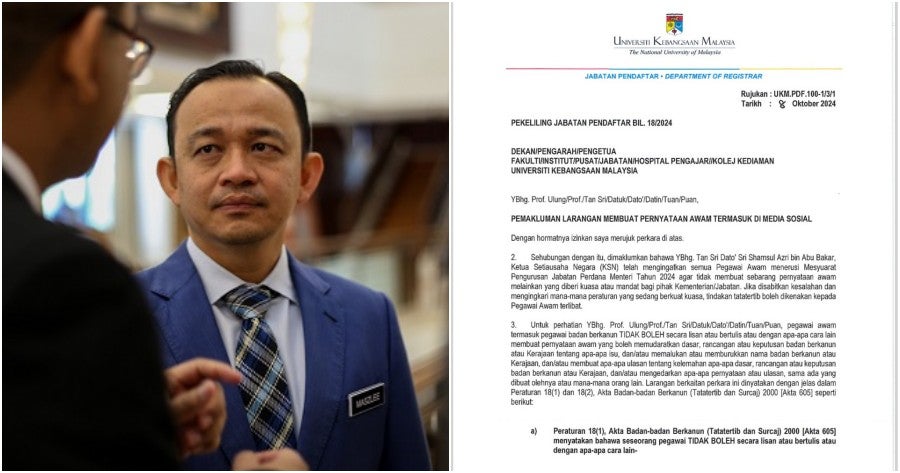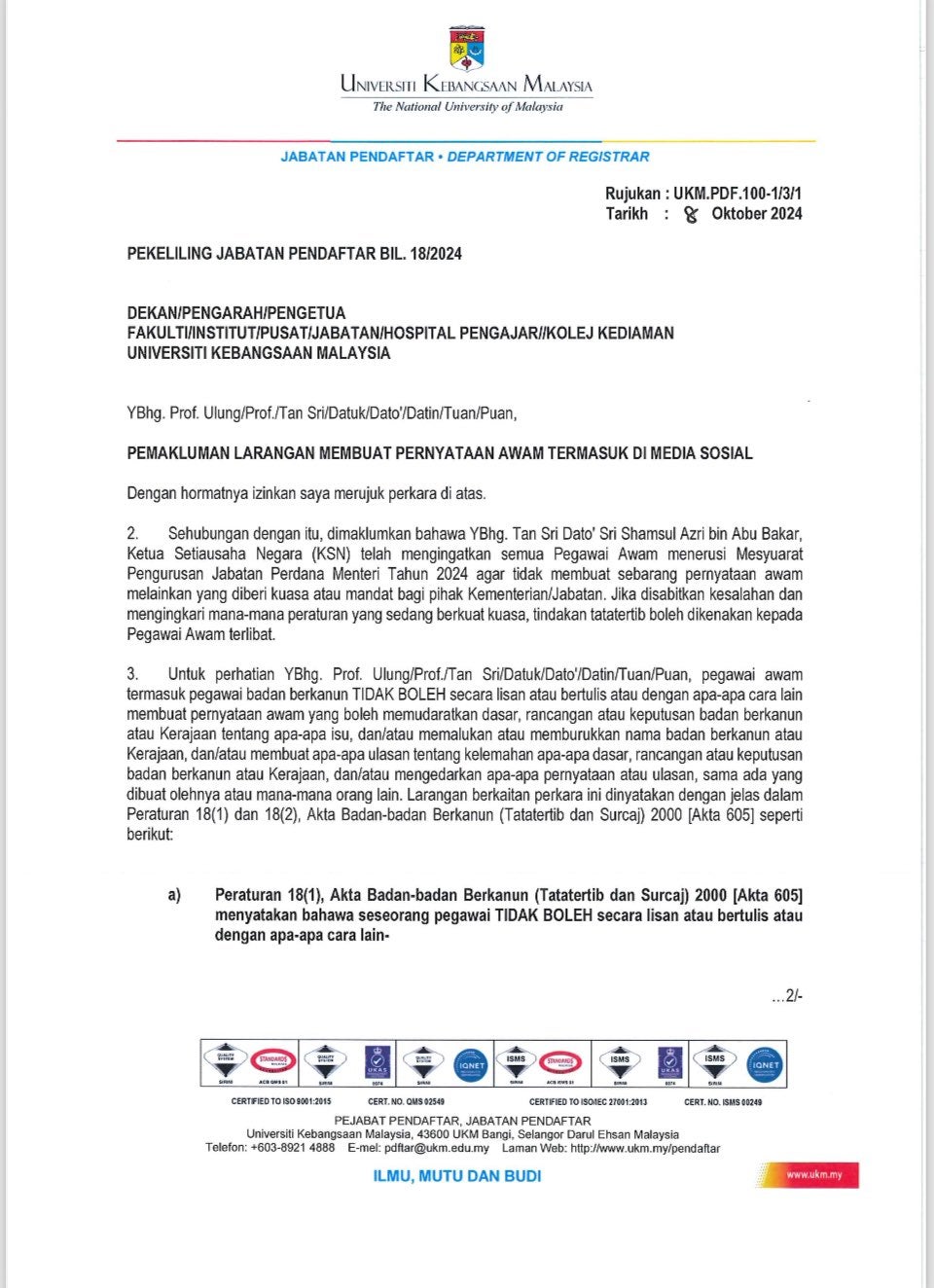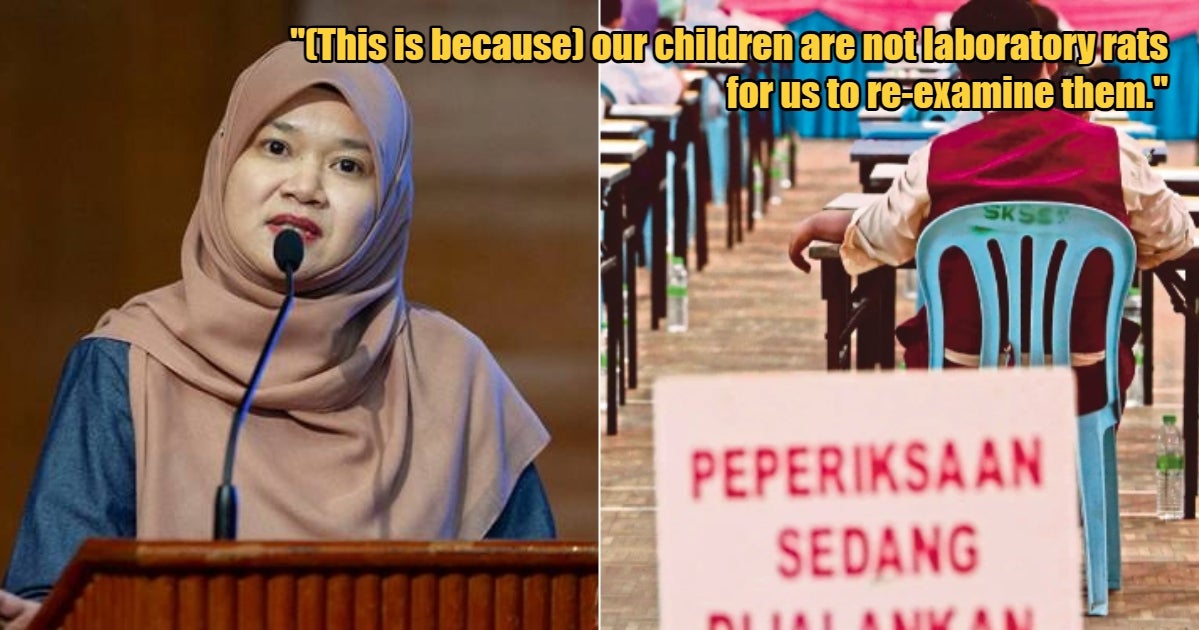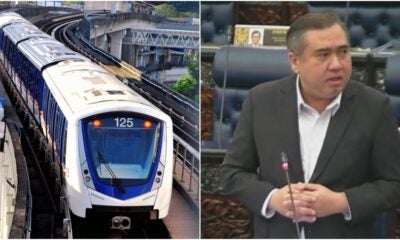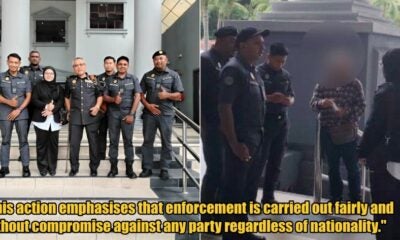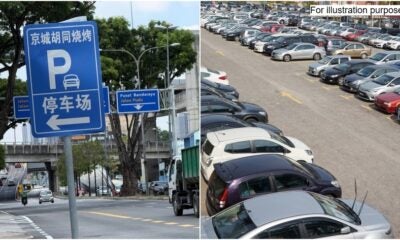The former Minister of Education recently took to his X account to share an internal memo he received from the Registrar’s Office of Universiti Kebangsaan Malaysia (UKM).
According to the memo, the university voiced its concerns regarding the notice prohibiting public statements, including those made on social media.
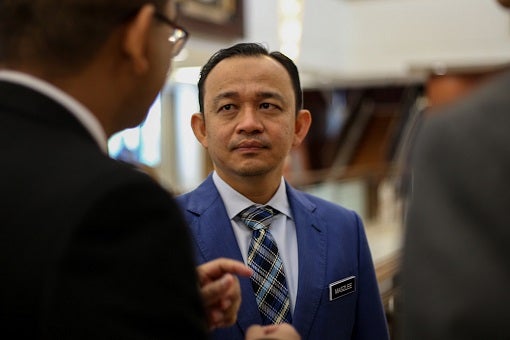
“Their roles were declared forbidden”
Maszlee revealed that he received a memo from UKM describing the situation as a “threat to academic freedom”. It stated:
“Sir, hope you are well. Today marks a sad day for Malaysia’s academic community, as Act 605, which is a genuine threat to academic freedom, has now been put into action. This effectively means that all policy researchers at UKM have had their roles declared forbidden.”
The memo went on to explain that the Chief Secretary to the Government (KSN) reminded all public officers during the 2024 Prime Minister’s Department Management Meeting not to make any public statements unless explicitly authorised to do so by their respective Ministry or Department.
Additionally, it was noted that any public officer found guilty of violating these regulations could face disciplinary action.
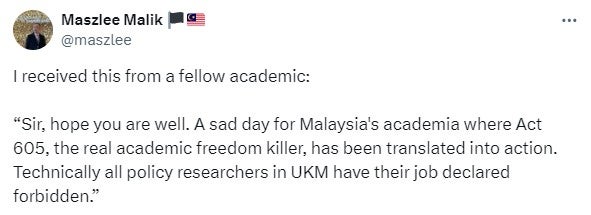
Public officers are prohibited from doing any of the following:
Alternatively, regulation 18(2) of the Statutory Bodies (Discipline and Surcharge) Act 2000 [Act 605] states that officers can’t do any of the following (verbally or in writing or by any other means):
- Comment on the merits of any policy, plan, or decision of a statutory body or the Government.
- Provide any factual information related to the functioning of statutory bodies or the Government.
- Explain any event or report involving a statutory body or the Government.
- Disseminate any such comments, information, or explanations, whether made by themselves or by others.
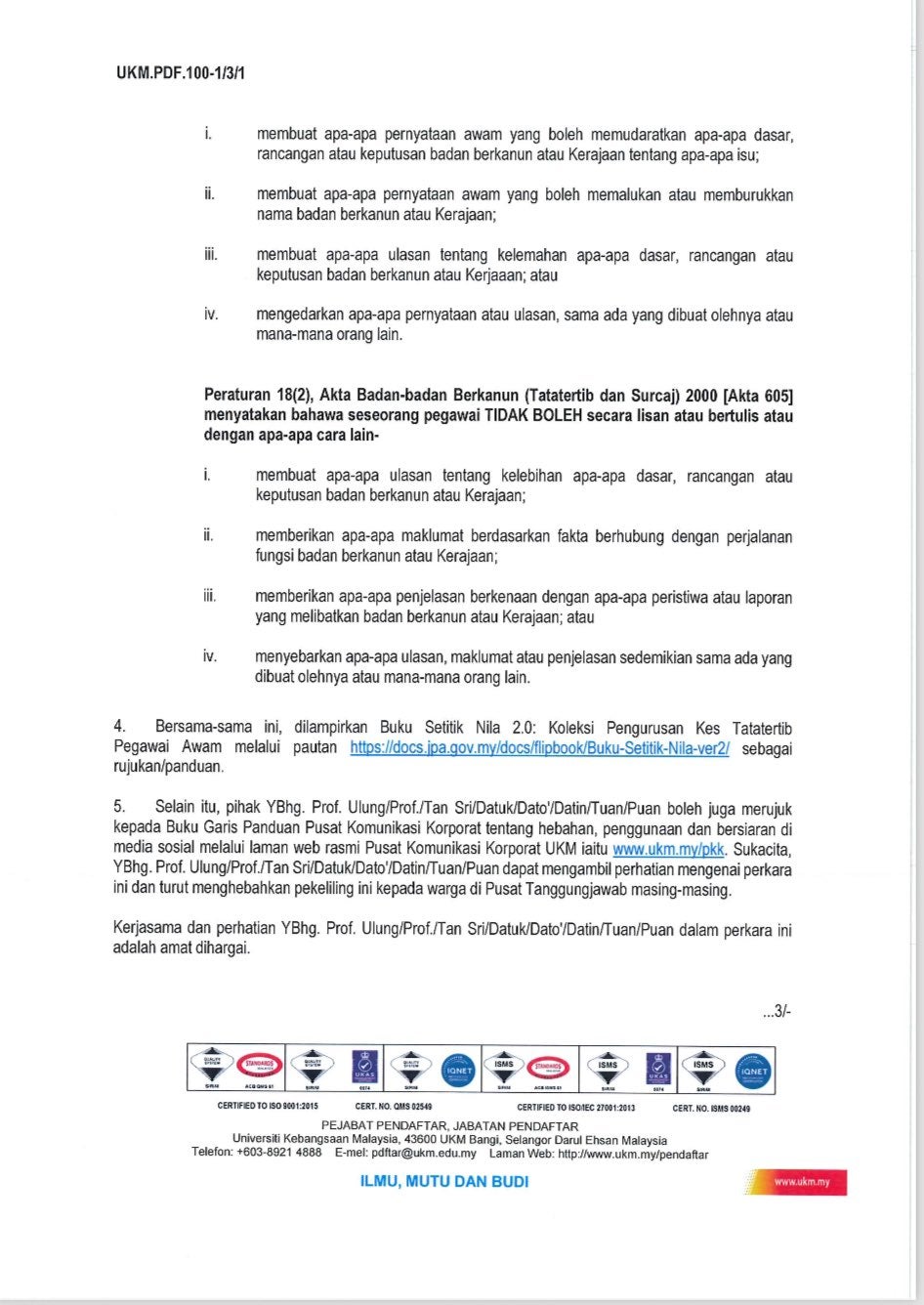
Maszlee Malik’s response
Maszlee decided to step in and took to his Facebook to clear things up for anyone still confused about how Act 605 ties into academic freedom.
He shared that the Ministry of Education Malaysia (KPM) is always working on different efforts to strengthen the legal and regulatory framework, making sure these important aspects are protected.
With this in mind, KPM is looking to amend Act 605 (the Statutory Bodies Act) to give lecturers more freedom. These changes will let them publish articles and make media statements without restrictions, even on sensitive topics.
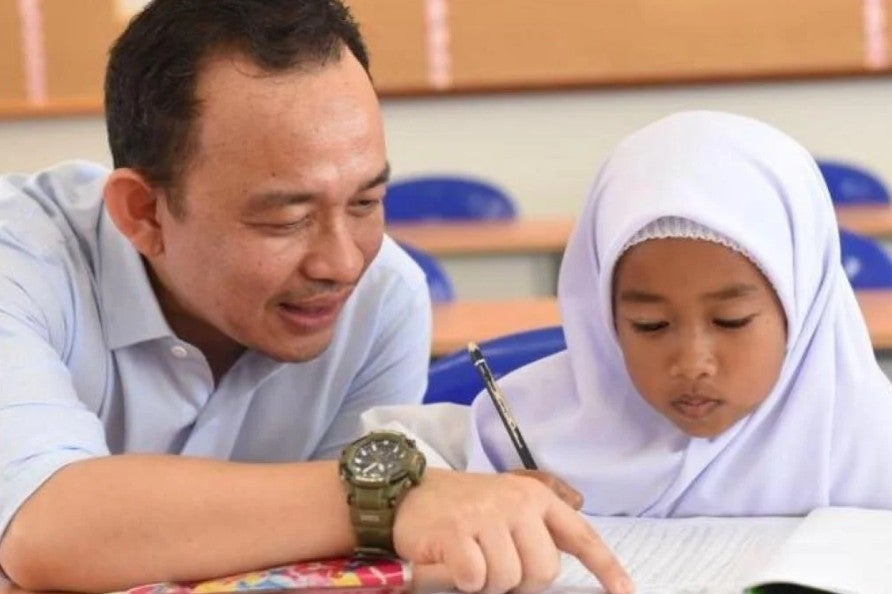
“Academic freedom is always guaranteed”
Maszlee continued to explain that the effort to amend the Statutory Bodies (Discipline and Penalty) Act 2000-Act 605, is aimed at ensuring that academic freedom is always guaranteed while simultaneously reinforcing the integrity of academics.
“When we talk about academic freedom, we can’t ignore the importance of integrity, accountability, and high ethical standards. This means that academics should enjoy the benefits of their work but also take responsibility for their actions. At the same time, KPM wants to tackle any integrity issues that might come up with academics.”
He emphasised their goal of nurturing a group of scholars who operate with honesty and integrity. After all, no country can truly thrive if its scholars are held back and their wisdom and integrity are compromised.
“We aim to create a space where freedom comes with responsibility, allowing higher education institutions to flourish and be recognised as key problem solvers in society.”
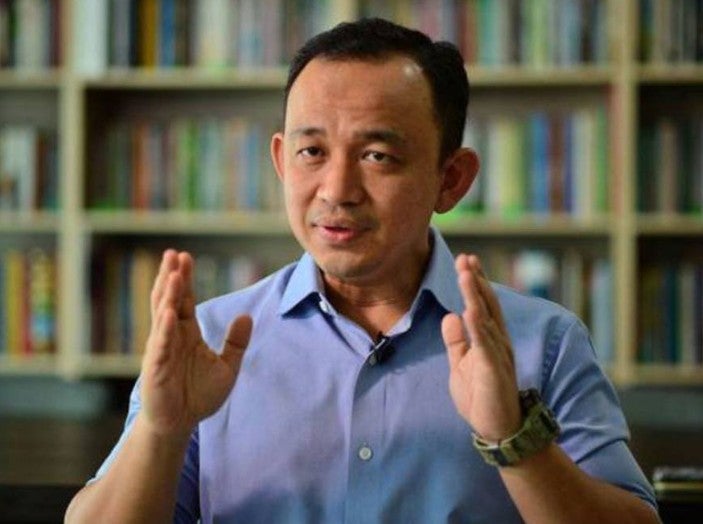
Maszlee revealed how he has personally met with the Prime Minister at the time, YAB Tun Dr. Mahathir, to discuss exempting academics from public service restrictions and proposed adding guidelines to help improve their academic standards.
Also read: Education Minister Confirms UPSR & PT3 Will Remain Abolished Despite Demand from M’sians

